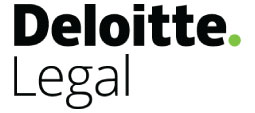The fiscal regime of companies and contractors operating onshore in the exploration & production segment of the oil and gas industry in Albania was fundamentally changed by Law no. 153/2020 On the Fiscal Regime in the Hydrocarbon Sector (the Hydrocarbon Fiscal Law or HFL), that came into effect on February 2, 2021.
According to the accompanying report of the HFL, one of the main purposes of the law is to mitigate tax avoidance and evasion in the sector, by subjecting to the fiscal regime (e.g. the application of a specific profit tax rate of 50%) certain sub-contractors, which directly or indirectly perform hydrocarbon-related operations and fall under one of the following circumstances: (a) the sub-contractor is an associated party with the operating company; (b) the sub-contractor performs essential activities for the hydrocarbon-related operations, constituting at least 25% of the contractor’s operation costs; and (c) the sub-contractor has entered into an agreement with the contractor, the main purpose of which is to avoid the application of the HFL’s specific tax rate.
Whereas the HFL provides the foundational principles and rules, the clarification and implementation of this measure has been recently detailed by a normative act of the Council of Ministers, namely Decision no. 397 dated 30.06.2021 On the approval of detailed rules for the subcontracted legal persons that perform hydrocarbon-related operations (the Decision), published with the Official Gazette no. 108, dated 07.06.2021.
Regarding the first criterion, the Decision does not actually provide further details, but merely reiterates the reference to the definition of the associated parties in the Law no. 8438/1998 On the income tax, as amended (the Income Tax Law). Although the definition of the Income Tax Law provides certain illustrative cases, such as a 50% threshold of ownership/voting rights, it still remains quite broad and open to interpretation case-by-case.
As regards the second criterion, the Decision provides that the assessment of whether the activities constitute essential activities will be carried out on a quantitative basis, by considering the total amount in all invoices (excluding VAT) issued by the sub-contractor to the contractor. In other words, if the total amount of the invoices account for at least 25% of the total costs of the hydrocarbon-related operations performed by the contractor, then the sub-contractor’s profits for this part of their activity will be subject to the 50% tax rate established by the Hydrocarbon Fiscal Law. It should be noted that there is no specification of the period for which such assessments will be made. It can be implied that, since the profit tax is declared and paid annually, the assessment and classification will happen on an annual basis as well.
Regarding the third criterion, on the improper use of agreements, the tax administration in collaboration with the National Agency of Natural Resources will investigate and scrutinize the compliance of the agreements and arrangements between contractor and sub-contractor with the HFL and the Income Tax Law, looking for any potential case of tax avoidance or evasion.
Where evidence is found of transactions or actions carried out by the contractor and the sub-contractor with the aim to evade or reduce the tax rate, the tax administration is entitled to adjust and re-assess the tax liability of the sub-contractor, in accordance with current legislation and procedures. The final decision on the applicable profit tax rate for the offending sub-contractor will be taken by the General Tax Director.
Albeit with a certain delay from the 3-month deadline provided in the HFL, the recently enacted rules on the regime of sub-contractors clarify the law’s implementation and constitute a milestone that will considerably affect the actors in the industry. Nevertheless, the Decision still falls short from being an exhaustive rulebook and requires further clarification with time, through the practice and interpretation of the authorities.
By Sabina Lalaj, Local Legal Partner, and Erlind Kodhelaj, Senior Legal Manager, Deloitte Legal
This Article was originally published in Issue 8.8 of the CEE Legal Matters Magazine. If you would like to receive a hard copy of the magazine, you can subscribe here.


